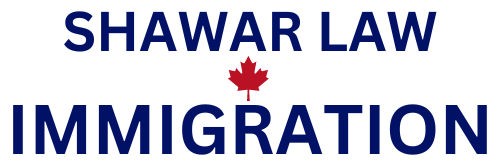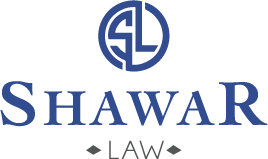FAMILY SPONSORSHIP – SPONSOR YOUR ADOPTED CHILD
There are two processes that you must go through when you adopt a child from another country: the adoption process and the immigration process.
The immigration process has two parts:
• the application for sponsorship; and
• the application for permanent residence for the child.
After your child arrives in Canada as a permanent resident, you can apply for citizenship on the child’s behalf. However, the adoption must be finalized before the child can be granted citizenship.
A. About the process:
Once the adoption process is in progress and you have received a Letter of No Objection from the province or territory, you can apply to sponsor your child. After that, you can apply for a permanent resident visa for your child to come to Canada.
1. Sponsoring your adopted child
When you apply to sponsor a child for adoption, remember that you are committing yourself to provide the necessary care and support for that child. You are bound to this agreement for 10 years or until the child reaches the age of 25—whichever comes first.
Sponsorship application process:
a. Get the application package
b. Pay your application fees
c. Submit your application
2. Apply for permanent resident status for your adopted child
If your application for sponsorship is accepted, IRCC will inform the Canadian visa office that has jurisdiction over the child’s home country and send you an application for permanent residence.
You can either fill out this application form on the child’s behalf or send it to the child’s guardian to do so. The completed application form must be sent back to that Canadian visa office.
When your child’s application is sent to the visa office, it will be reviewed to verify that the child meets the immigration requirements. If the adopted child is not an infant, the visa officer may have to interview the child to make a decision.
B. Check your eligibility to sponsor:
1. Requirements to sponsor a child:
To sponsor a child from another country for adoption, you must:
• be a Canadian citizen or a permanent resident (if you do not currently reside in Canada,
you must do so when the adopted child becomes a permanent resident);
• live in Canada; and
• be at least 18 years old.
You may not be eligible to sponsor in some cases, such as:
• if you did not meet the requirements of a previous sponsorship agreement.
• if you defaulted on a court-ordered support order, such as alimony or child support.
• if you have been convicted of a violent criminal offence—depending on the nature of the offence, when it occurred and whether a record suspension was granted; or
• if you do not live in Canada now and do not plan to live full-time in Canada when the child becomes a permanent resident.
2. Requirements for permanent resident status:
For your child to be eligible for permanent resident status, you must be:
• a Canadian citizen, born or naturalized in Canada, applying on behalf of the adopted child who is under 18 years of age at the time of application;
• an adopted person who is 18 years of age or older at the time of application, and was adopted by a Canadian citizen, born or naturalized in Canada;
• a legal guardian applying on behalf of an adopted child under 18 years of age at the time of application if the child had at least one Canadian parent, born or naturalized in Canada, at the time of adoption;
• a non-Canadian adoptive parent applying on behalf of an adopted child under 18 years of age at the time of application if the other parent is a Canadian citizen, born or naturalized in Canada at the time of the adoption.
3. Requirements for intercountry adoption
The immigration process allows two types of adoptions of children under 18. Depending on the
law of the child’s home country, the intercountry adoption must either:
• be completed outside of Canada; or
• be completed in Canada.
For Canadian immigration purposes, all intercountry adoptions must:
• be legal in the child’s home country and in the province or territory where you live;
• end the legal relationship between your adopted child and his or her biological parents;
• meet the requirements of your province or territory, including a home study;
• create a genuine parent–child relationship between you and the child;
• be in the best interests of the child;
• not be primarily to gain permanent resident status for the child in Canada.
Children adopted outside Canada may be sponsored to come to Canada if:
• informed consent has been given by both of your child’s biological parents (if they are living).
• your child has been legally adopted outside Canada.
• the requirements of the Hague Convention have been met, if they apply.
4. Medical requirements
Adopted children must complete a medical exam before being issued a permanent resident visa. You must also sign a statement that you have obtained information regarding any medical conditions the child may have.
E. Processing time:
The processing time for the application to sponsor your adopted child varies by country. It will vary based on:
• if the application is complete
• how quickly IRCC expect to process applications received
• how easily IRCC can verify your information
• how long you take to respond to any requests or concerns
• other factors

